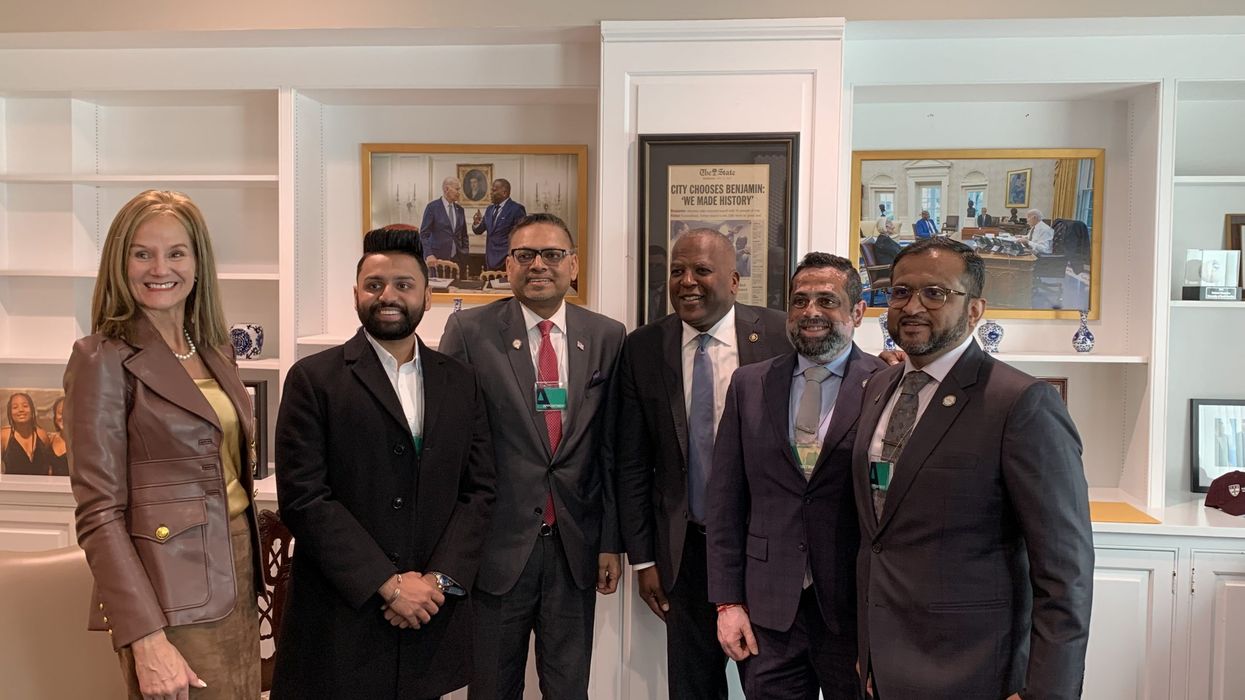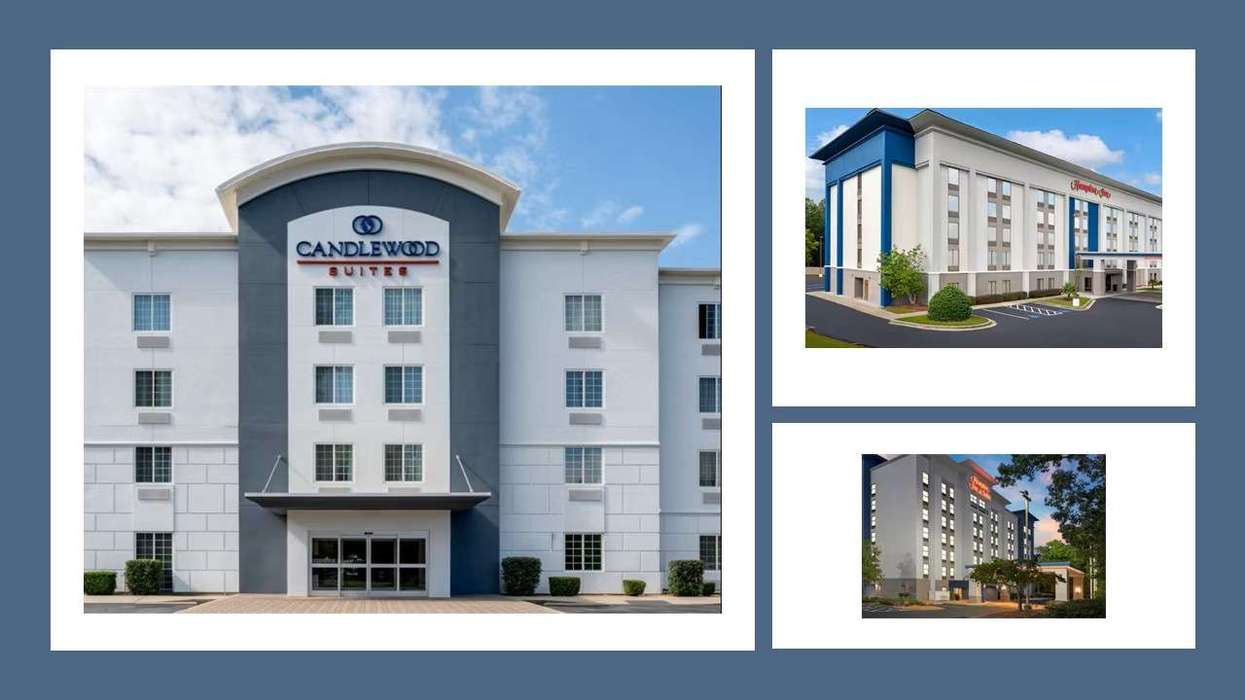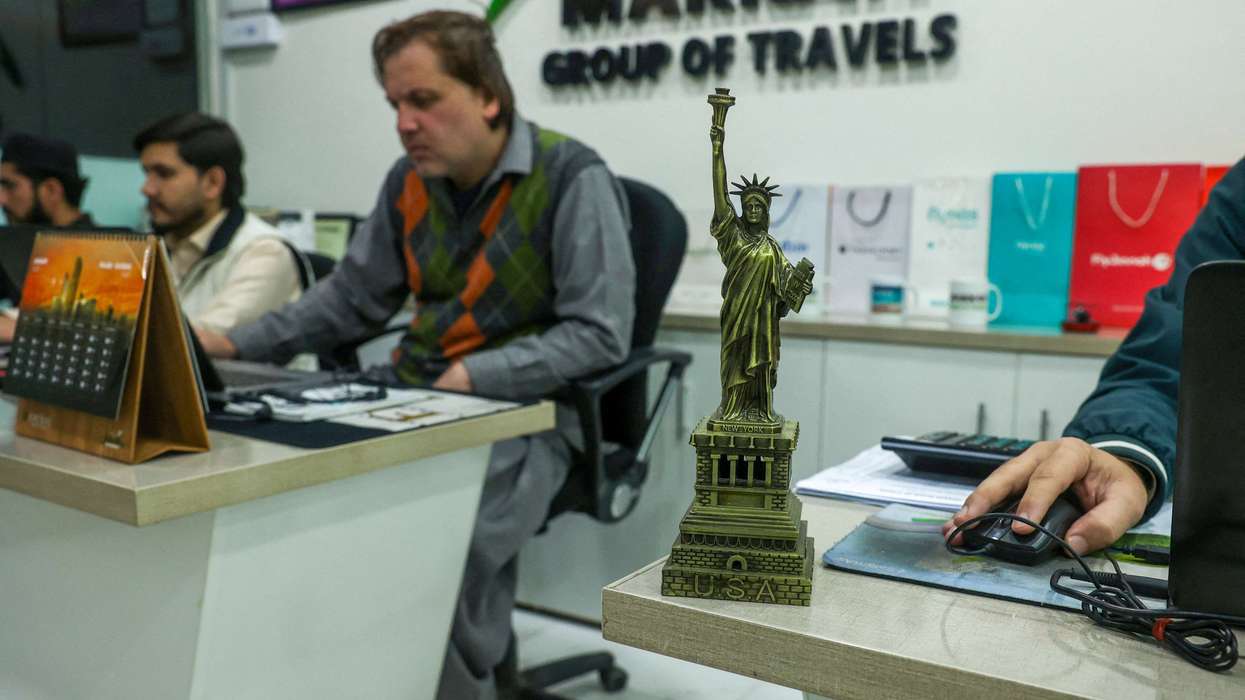AAHOA LEADERS AND members met with the nation’s leaders in Washington, D.C., for the association’s 2023 Fall National Advocacy Conference on Oct. 24 to 25. Topics covered included Small Business Administration loan limits, the Credit Card Competition Act and the labor shortage.
The AAHOA contingent met with more than 200 offices and 70 members of Congress as part of the conference. Keynote speakers for the event were Reps. Beth Van Duyne, Republican from Texas; Rich McCormick, Republican from Georgia; and Shri Thanedar, Democrat from Michigan.
“Advocacy at the state, local, and federal level is a pillar upon which AAHOA stands,” said Bharat Patel, AAHOA chairman. “Representing such a large portion of the hotel industry, it is through our voice that we strive to shape and fortify policies that help pave the way to our industry’s success.”
The conference also is essentially a networking opportunity, said Laura Lee Blake, AAHOA president and CEO.
"Meeting face to face with lawmakers is the bridge that connects passion to policy," Blake said. "As the voice of more than 60 percent of all U.S. hotel owners, it is critical that our AAHOA leaders work with lawmakers to implement changes that will lift up the industry in these challenging times. As our AAHOA members share their stories and speak about the pressing issues, they build personal connections with the top lawmakers in this country. The long-term impact will be immense, and allow AAHOA to serve the industry for many future generations."
The issues facing the industry include:
Increasing limits on SBA loans – AAHOA has been advocating for increasing SBA Loan Limit Amounts for some time. Last year Blake and other AAHOA representatives met with Sen. John Hickenlooper, Democrat from Colorado, in Washington at his Capitol Hill office to discuss the issue.
Hickenlooper, who was once a small business owner, discussed his own involvement in seeking to increase the overall maximum of SBA loans on different levels to better reflect prices at that time. Currently, many hoteliers use SBA 7(a) and 504 loans to help finance the new construction or purchase of their hotel properties, and current loan limits are set at $5 million. The current costs of building and purchasing properties greatly exceed $5 million.
“Since the value of the hotels is significantly higher than these loan limits, there remains substantial collateral for higher loan amounts,” AAHOA said in a statement at that time. “Congress can greatly assist small businesses by increasing the SBA loan limits to match the current economic conditions and thereby create a sustainable business model for the future.”
Other SBA loans have lower limits, such as SBA Express and Export Express loans that are limited to $500,000, according to the SBA.
“SBA's maximum exposure (i.e., dollars guaranteed) is $3.75 million,” the administration said on its website. “However, 7(a) International Trade loans may receive a maximum guaranty of 90% or $4.5 million. The amount guaranteed for working capital for the International Trade loan combined with any other outstanding 7(a) loan for working capital cannot exceed $4 million.”
The Credit Card Competition Act – The act aims to reduce the amount of “swipe fees” small businesses pay each time their clients pay with credit cards by increasing competition among credit card processing companies to give them more choice, according to the National Federation of Independent Business. The fees have doubled since 2012 and in a recent NFIB member ballot, 92 percent of small business owners believe that businesses should have the right to choose between multiple credit card processing networks.
“Without this legislation, businesses everywhere are subjected to ever-rising swipe fees set by large credit card companies in a closed market, free from competition,” NFIB said in a statement.
The Essential Workers for Economic Advancement Act and the SEASONAL Act – In July, AAHOA came out in support of the Essential Workers Act, which creates an H-2C visa program for non-immigrant, non-agricultural service workers. It targets small businesses in industries with lower educational requirements and allows visas for three years, renewable for up to six more years. In the first year of the program, H-2C visas would be capped at 65,000 workers. Afterward, the annual visa limit would range between 45,000 and 85,000 visas, the statement said.
Similarly, the Seasonal Occupations Needing Additional Labor (SEASONAL) Act would also provide supplemental H-2B nonimmigrant visas, according to the National Immigration Forum. It would allow governors in states with labor shortages to petition the Department of Homeland Security and the Department of Labor for extra visas. Four requirements would have to be met:
- The number of H-2B visa applications from all qualifying employers in the state exceeds the numerical limitation for each fiscal year.
- The state’s unemployment rate is at or below 3.5 percent in at least nine of the 12 most recent monthly reports issued by the Bureau of Labor Statistics.
- Petitioning governors must certify that there is a persistent, unmet need for labor in their states.
- Governors must demonstrate the supplemental H-2B visas will not displace domestic workers or negatively affect average wages in the state.
“Like us, legislators are human first. Events like FNAC remind us that relationship building is woven into the fabric of governance,” said Patel. “Year after year, AAHOA Members help inform lawmakers about our industry. AAHOA Members make up an industry that contributes significantly to the American economy. Our voice has great value and deserves to be heard.”






